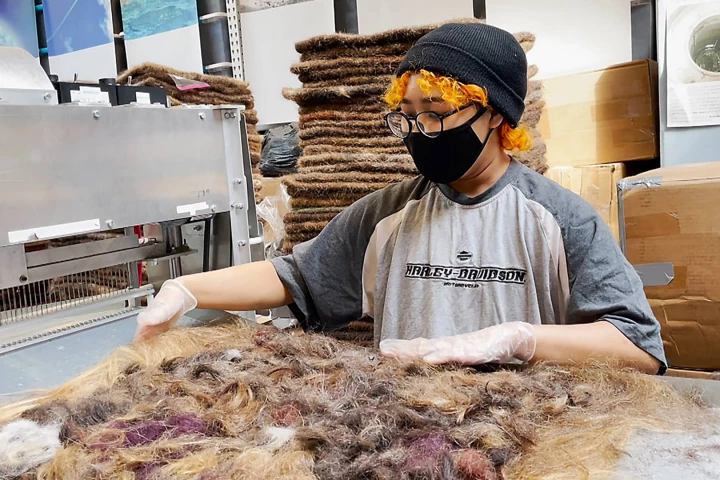Gulf Oil Spill
-
In a world of weird, this one ranks up there... A non-profit out of San Francisco, California, is cleaning up oil spills using the naturally adsorbent properties of human hair, woven into thick mats that soak up a gallon and a half at a time.
-
A highly porous and recyclable mat developed at Saudi Arabia’S King Abdullah University of Science and Technology (KAUST) could mean good things for the environment, with its creators reporting it can adsorb oil with great efficiency.
-
Cleaning up oil spills is a dirty job, but somebody has to do it. That somebody might be the bacterium Alcanivorax borkumensis, which eats the hydrocarbons that make up oil. Researchers at INRS have isolated key enzymes that A. borkumensis uses, and put them to work cleaning soil samples in the lab.
-
One month after the BP oil spill, the US government commissioned research to calculate the environmental cost of the disaster. The results are now in, with scientists placing a mighty price tag on damage to natural resources.
-
When oil is spilled into the ocean, clean up efforts can focus on the surface, but plumes of subsurface oil are harder to recover. The Oleo Sponge is a new type of foam that can not only soak up oil that has dispersed throughout water, but can be wrung out to reuse both the material and the oil.
-
Amateur mechanics have long used sawdust to clean up oil spills in their garages. Now, scientists are looking to see if this low-tech solution can be adapted to protect the Arctic in case of an oil spill in its icy waters.
-
The latest candidate to emerge in oil spill cleanup solutions is a multipurpose fabric covered in tiny semi-conducting rods, affording it a unique set of properties that could see it used to deal with everything from water decontamination to wiping down your kitchen counter.
-
Researchers in Australia claim to have found a promising material to help in cleaning up oil spills. They've developed a special porous material they say has the ability to soak up to 33 times its own weight in oil and organic solvents.
-
BP has purchased a trial Voraxial Separator, which uses centrifugal force to separate oil from water, for testing in the Gulf Oil Spill.
-
A simple polymer-based filter has successfully separated oil from water in Gulf of Mexico tests and could be used to help clean up the environmental disaster.
-
A high-tech robotic submersible has been sent to the Deepwater Horizon oil spill to help shed some light on where oil is spilling beneath the ocean surface and to aid biologists and others understand the effects of this catastrophic event.
-
Gizmag takes a brief look at some of the ideas that have been proposed for dealing with the oil slick in the Gulf of Mexico.











